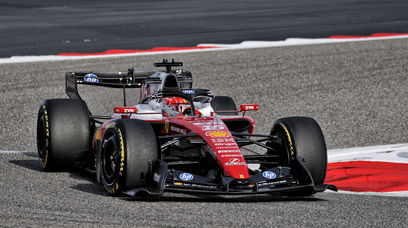The F1 season will end in six races' time in Abu Dhabi, with the fight for the drivers' title promising to go all the way between Max Verstappen and Lando Norris. After victory in Singapore, Norris cut Verstappen's led to 52 points with 180 left on the table across the final six races, which include three sprint events. It is a margin which is on the one hand small, but which forms a nice cushion for Verstappen to grab his fourth straight world title. Given the close fight, it is essential to understand what Red Bull will be able to do to guarantee adequate competitiveness from the RB20, which showed signs of a recovery in Azerbaijan through Sergio Perez and Verstappen in Singapore, although this was more down to track conditions and layout rather than a turn in the machine's competitive state. Therefore, this article will be split into two parts to imagine developments Red Bull could bring to Austin for the United States Grand Prix that it hopes will be a game-changer. Firstly, it seems appropriate to recognise the changes in performance and technical pecking order of the cars across the grid in 2024. The strangeness of the RB20 in particular in winning seven of the first 10 races, and then none of the next eight as its form nosedived should not be overlooked. It is a change in fortunes which even going back several years, is impossible to find a similar situation for. Over the summer, the idea was repeated that the concept of the RB20 had followed an incorrect development path, sending the Milton Keynes engineers down the wrong road, and it is there we start. The RB20 had profound problems with its vehicle dynamics and a poor aerodynamic balance, with the new floor introduced at Silverstone proof that the machine, was at that point, insensitive to upgrades. The evolution to the peripheral part of the floor should have cured the ever-growing understeer reported by the drivers, by moving the centre of aerodynamic pressure towards the forward section of the floor. But in reality, and what also emerged in Hungary was that the problems were actually amplified and not reduced to a level seen in the Austrian GP. This therefore suggests that Red Bull actually understood the extent of the problem in Hungary and then began the process of a backward analysis to understand where the correlation between wind-tunnel and CFD data and on-track information began to show. The first concrete result of this process was the revised diffuser brought to Baku, to regulate the pressure of the outgoing air and make the rear of the car, especially in low downforce configuration, more stable. But that was only the first step, which in itself provides a clear indication of the corrective measures we should see when F1 arrives in Austin - but that will be explored in part two of this analysis.
Revised floor in Silverstone
It represented a clear indication that the car was not sensitive to development, leaving the RB20's dynamic behaviour unchanged.
Revised diffuser in Baku
It was the first step for the RB20's performance recovery, improving the stability of the rear end.
Most read







